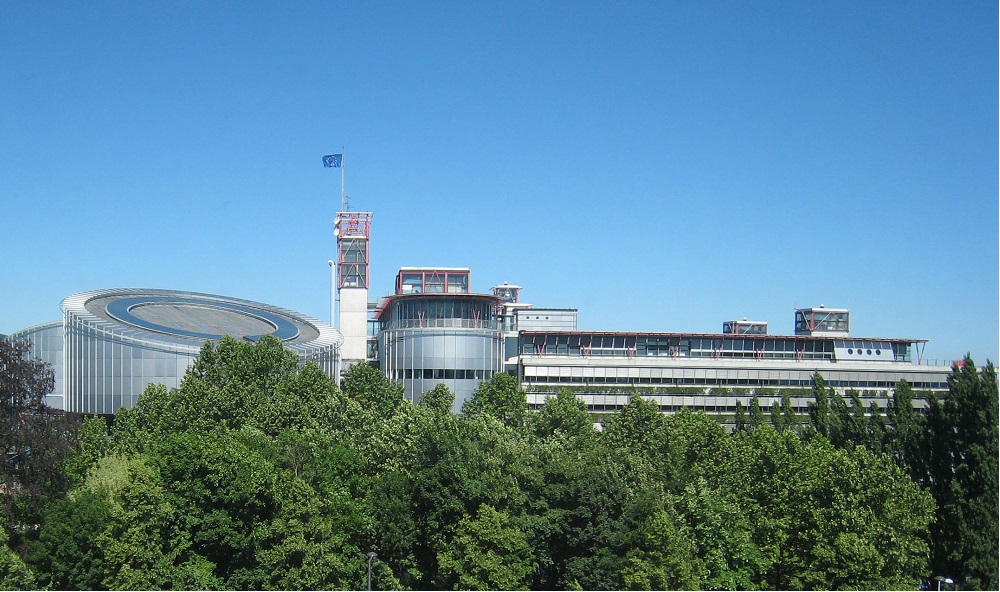On July 21st, 2016, the European Court of Human Rights rendered public its ruling concerning the Foulon and Bouvet cases against France (no 9063/14 and 10410/14) in which the French authorities were accused of refusing to record the filiation established in India of children born from commercial gestational surrogacy. Applying its jurisprudence established in the Mennesson and Labassée cases of 2014, the court concluded that France had violated the right of children to privacy, while rejecting the allegation of a violation of family life by the adults involved.
In the Foulon case, a little girl was born on July 31st 2009 at the Hiranandani clinic specialised in surrogacy, in Mumbai, in India. Her birth certificate indicates that her mother is Minakshi Shirodkar, an Indian lady without profession born in 1980, and her father Didier Foulon, a French architect born in 1971, living in the US. The medical certificate of the clinic notes that this little girl was born by caesarean, which is frequent for children born from surrogate mothers. Indeed, Indian clinics often oblige the pregnant women to have a caesarean three weeks before the term without any medical reason, so as to make sure the baby won’t be marked by birth and that its head will be nice and round. It also reduces the cost of the mother’s care and enables the buyer to buy a ticket in advance, at the given date. The mothers do not receive adequate care after they have given birth, thus leading to a high percentage of maternal mortality.
One month after the baby was born, in a written document, Didier Foulon declared “on his honour taking responsibility for the financial costs of the pregnancy, the hospital, the room… He also handed out 100,000 rupees for the mother to be more comfortable and well fed and to cover any expenses she may have while [he] was away”. 1000,000 rupees (about 1,300€), the equivalent of three years of salary for a labourer. A couple of days after the baby was born, he also gave the clinic 60,000 rupees.
By a notarial deed, Mrs Shirodkar, the mother, then gave her daughter up and authorized Mr Foulon to “take my daughter to France”. Interrogated by the French consular services, Minakshi Shirodkar said that she knew neither the age nor address of Mr Foulon, nor even if he was married of single, and that she had no intention of keeping in contact with him. The parents’ address indicated on the birth certificate was the clinic’s.
In the Bouvet case, two children were born on April 26th 2016 in the same clinic as in the Foulon case, in Mumbai. Their birth certificate indicates that their mother’s name is Pushpa Kharat, an Indian lady, without profession, born in 1982, and that their father is Philippe Bouvet, a French man, aged 45 at the time of birth. The facts are therefore identical as in the Foulon case, the difference being that Mr. Bouvet was living as a couple with another man, who had already employed the Indian company to have twins.
Mr Foulon and Mr Bouvet are probably the fathers of the children, and everything seems to indicate that Minakshi Shirodkar and Pushpa Kharat are the genetic mother, as well as being the surrogate mothers. On its website, the Hiranandani clinic specifies that it carries out surrogacy by artificial sperm insemination into the surrogate mother and by embryo implantation after IVF. In the first case, it is much less expensive, the “surrogate” mother is the true genetic mother of the child: it is truly her child she is selling to live. The terms in which she gives the child up indeed indicate that the women consider the children as theirs. In the Foulon case, the Court of Appeal noted that that “it is not only a contract of surrogacy prohibited by the French law, but also the purchase of a child, obviously contrary to public order”.
This new judgement marks a new stage in the liberalization of gestational surrogacy and child commerce. First in the Mennesson case, the court ruled in favour of married heterosexual couples having had children in the United States, now, with the Foulon and Bouvet ruling it gives right to single or homosexual men, having “rented a woman” to obtain children in India, at a low cost.
Obviously, it is in the child’s interest for their filiation with their biological parents to be established. It is, however, scandalous that not once did the court question the practice of surrogacy. It didn’t give any importance to the circumstances in which the children were born, to the shameful exploitation of the mothers, treated like slaves. Neither did it question the consequences for these children of having been ordered, payed, abandoned by their mothers, and then raised by a man who took them away from their mothers. One day, these children will rebel, and they will be right.
Concerning these violations of fundamental rights, the court has looked the other way and submitted to the fait accompli. It has just reinforces “low-Cost surrogacy” and “Gay surrogacy” and thus imposes the “right to a child for all”.
France has been condemned to pay 45,000 euros.

